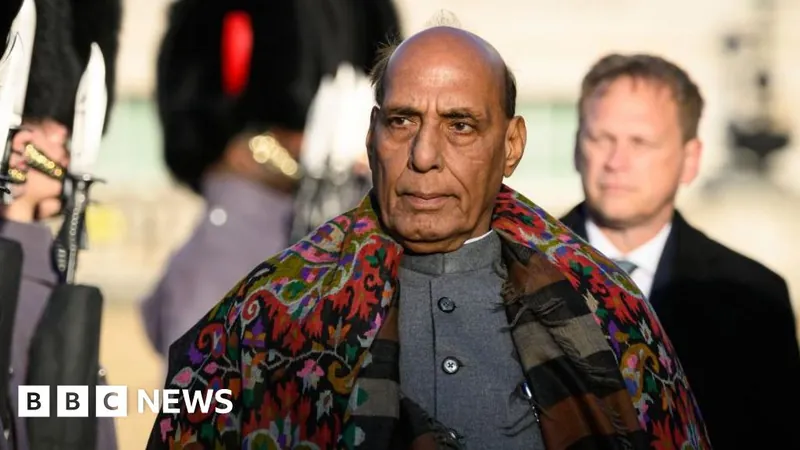
India Declines to Sign SCO Joint Statement Over Terrorism Concerns
2025-06-27
Author: Yan
In a bold move, India has opted not to sign a joint statement at the Shanghai Cooperation Organisation (SCO) summit held in China, citing that the statement failed to address critical concerns regarding terrorism, according to the Indian foreign ministry.
Foreign ministry spokesperson Randhir Jaiswal disclosed that India's wish for its concerns to be acknowledged was dismissed by a particular member state.
While specific details were not disclosed, reports suggest that India's refusal stemmed from the omission of a recent terrorist attack in Pahalgam, which tragically resulted in the deaths of 26 tourists in Indian-administered Kashmir.
India holds Pakistan accountable for harboring the militant group responsible for this violent act, a claim that Pakistan has firmly denied.
Founded in 2001 by China, Russia, and four Central Asian nations, the SCO aims to counteract Western influences in the region. Notably, both India and Pakistan became full members in 2017.
The summit’s joint statement, discussed during the SCO defense ministers' meeting, has been perceived by India as biased towards Pakistan, especially since it referenced militant activities in Balochistan while neglecting the Pahalgam attack.
In a strong statement following the summit, India's Defence Minister Rajnath Singh emphasized the need for the SCO to hold accountable those who perpetrate cross-border terrorism, subtly signaling towards Pakistan without directly naming it.
"Some nations exploit cross-border terrorism as an instrument of policy and harbor terrorists. There should be no space for such double standards," Singh remarked.
The Kashmir conflict has historically strained relations between India and Pakistan, leading to three wars. The recent Pahalgam attack escalated tensions, bringing both nuclear-armed nations precariously close to conflict.
In the wake of the attack, India carried out precision airstrikes targeting what it labeled as terror infrastructure across the border. Pakistan rebutted these claims, asserting that these were not terror camps and responded with missile launches into Indian airspace.
The hostilities simmered until a US-brokered ceasefire was announced on May 10, with President Donald Trump stating that both nations had committed to a 'full and immediate' halt to hostilities.
Despite the involvement of the US, India has consistently refuted any claims of external intervention in its affairs.


 Brasil (PT)
Brasil (PT)
 Canada (EN)
Canada (EN)
 Chile (ES)
Chile (ES)
 Česko (CS)
Česko (CS)
 대한민국 (KO)
대한민국 (KO)
 España (ES)
España (ES)
 France (FR)
France (FR)
 Hong Kong (EN)
Hong Kong (EN)
 Italia (IT)
Italia (IT)
 日本 (JA)
日本 (JA)
 Magyarország (HU)
Magyarország (HU)
 Norge (NO)
Norge (NO)
 Polska (PL)
Polska (PL)
 Schweiz (DE)
Schweiz (DE)
 Singapore (EN)
Singapore (EN)
 Sverige (SV)
Sverige (SV)
 Suomi (FI)
Suomi (FI)
 Türkiye (TR)
Türkiye (TR)
 الإمارات العربية المتحدة (AR)
الإمارات العربية المتحدة (AR)